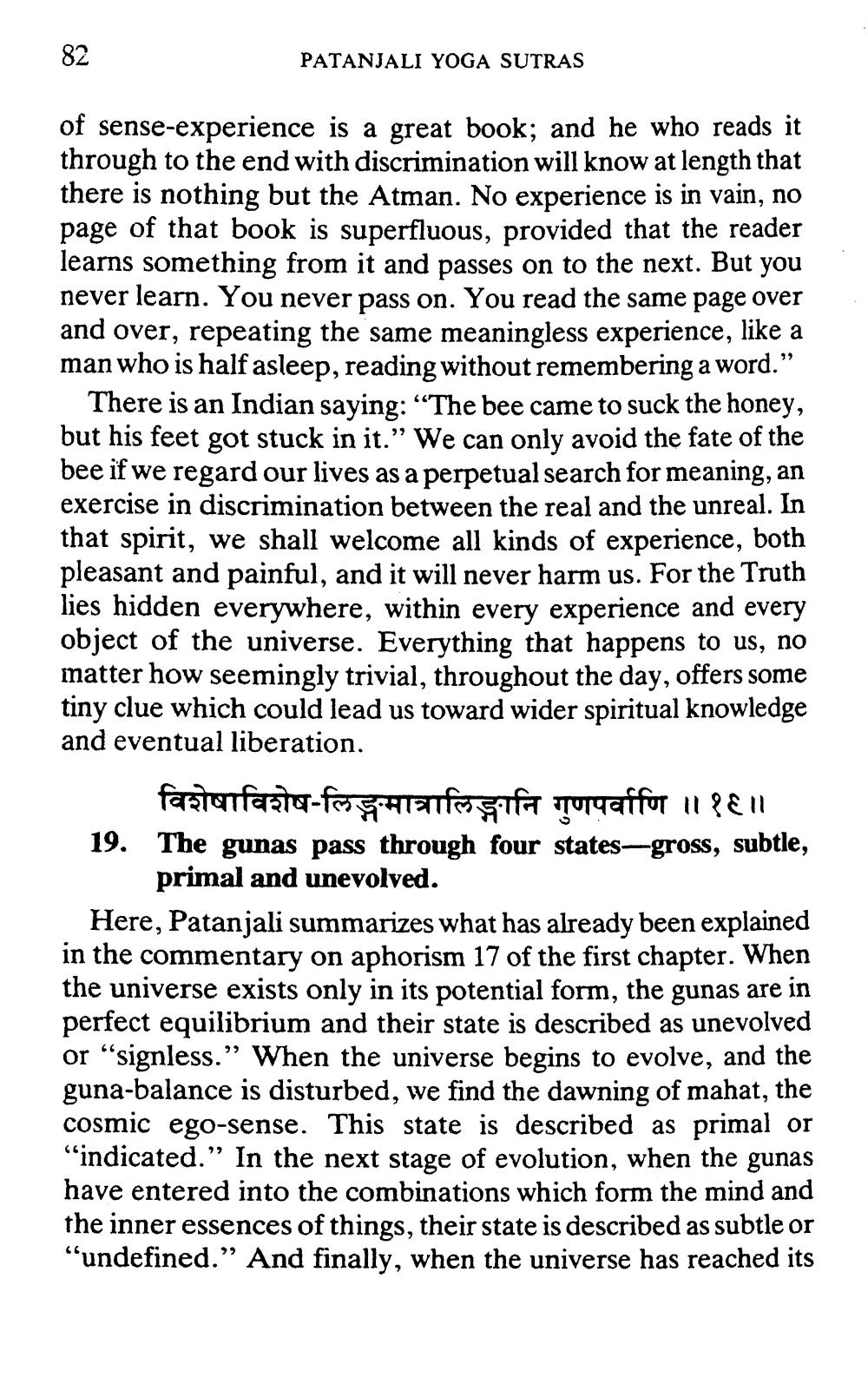________________
PATANJALI YOGA SUTRAS
of sense-experience is a great book; and he who reads it through to the end with discrimination will know at length that there is nothing but the Atman. No experience is in vain, no page of that book is superfluous, provided that the reader learns something from it and passes on to the next. But you never learn. You never pass on. You read the same page over and over, repeating the same meaningless experience, like a man who is half asleep, reading without remembering a word.”
There is an Indian saying: “The bee came to suck the honey, but his feet got stuck in it.” We can only avoid the fate of the bee if we regard our lives as a perpetual search for meaning, an exercise in discrimination between the real and the unreal. In that spirit, we shall welcome all kinds of experience, both pleasant and painful, and it will never harm us. For the Truth lies hidden everywhere, within every experience and every object of the universe. Everything that happens to us, no matter how seemingly trivial, throughout the day, offers some tiny clue which could lead us toward wider spiritual knowledge and eventual liberation.
विशेषाविशेष-लिङ्गमात्रालिङ्गानि गुणपर्वाणि ॥१६॥ 19. The gunas pass through four states-gross, subtle,
primal and unevolved. Here, Patanjali summarizes what has already been explained in the commentary on aphorism 17 of the first chapter. When the universe exists only in its potential form, the gunas are in perfect equilibrium and their state is described as unevolved or "signless.” When the universe begins to evolve, and the guna-balance is disturbed, we find the dawning of mahat, the cosmic ego-sense. This state is described as primal or “indicated.” In the next stage of evolution, when the gunas have entered into the combinations which form the mind and the inner essences of things, their state is described as subtle or "undefined.” And finally, when the universe has reached its




